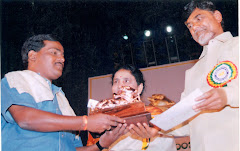Screenwriting
Screenwriting is the art and craft of writing scripts for film, television or videos.
Writing for film is potentially one of the most high-profile and best-paying careers available to a writer, and as such, it is perhaps the most sought after. It is increasingly difficult to make a living as a Bollywood,Hollywood,Tollywood or Kollywood screenwriter, but that does not stop tens of thousands of people from trying every year, as the capricious nature of the film industry makes it possible for a complete unknown to launch a career simply by writing a commercially-appealing screenplay and getting it into the hands of the right people.
Screenwriting in the entertainment industry
The act of screenwriting takes many forms across the entertainment industry. Often, multiple writers work on the same script at different stages of development with different tasks. Over the course of a successful career, a screenwriter might be hired to write in a wide variety of roles.
Some of the most common forms of screenwriting jobs include:
Spec script writing
Spec scripts are feature film or television show scripts written on speculation, without the commission of a studio, production company, or network. The vast majority of scripts written each year are spec scripts, but only a small percentage make it to the screen. A spec script is usually a wholly original work, but can be an adaptation of an existing source.
In television writing, a spec script is a sample teleplay written to demonstrate the writer's knowledge of a show and ability to imitate its style and conventions. It is submitted to the show's producers in hopes of being hired to write future episodes of the show.
Feature assignment writing
Scripts written on assignment are screenplays created under contract with a studio, production company, or individual. Assignment scripts are generally adaptations of an existing idea or property owned by the hiring company, but can also be original works based on a concept created by the writer or producer. Because assignments are created for hire, the writer typically has less creative freedom than on a spec script, and must meet specific criteria dictated by the producer.
Rewriting and script doctoring
Most produced films are rewritten to some extent during the development process. Very frequently, they are not rewritten by the original writer of the script. Many established screenwriters, as well as new writers whose work shows promise but lacks marketability, make their living rewriting scripts.When a script's central premise or characters are good but the script is otherwise unusable, a different writer or team of writers is contracted to do an entirely new draft, often referred to as a "page one rewrite." When only small problems remain, such as bad dialogue or poor humor, a writer is hired to do a "polish" or "punch-up."Depending on the size of the new writer's contributions, screen credit may or may not be given. For instance, in the American film industry, credit to rewriters is given only if 50% or more of the script is substantially changed. These standards can make it difficult to establish the identity and number of screenwriters who contributed to a film's creation.When an established, successful writer is called in to rewrite portions of a script late in the development process, they are commonly referred to as script doctors. Prominent script doctors include William Goldman, Robert Towne, and Quentin Tarantino.
Television writing
A freelance television writer uses spec scripts or their previous credits and reputation to get contracted by an existing tv show to write one or more episodes. After the episode is written, the teleplay is submitted to the network and rewriting or polishing may be required. Subsequent drafts of the script may be done by the freelancer or by the show's staff.A staff writer for a television show generally works in-house writing and rewriting episodes for the show. Staff writers - often given other titles, such as story editor, or producer - work both as a group and individually on episode scripts to maintain the show's tone, style, characters, and plots.
Television show creators, also known as show runners, write the pilot episode and bible of a new television series. They're responsible for creating and managing all aspects of a shows characters, style, and plots. Frequently, a creator remains responsible for the show's day-to-day creative decisions throughout the series run.
Video game writing
With the continued development and increased complexity of video games, many opportunities are available to screenwriters in the field of video game design. Video game writers work closely with the other game designers to create characters, scenarios, and dialogue.
Srivenkat Bulemoni.
Subscribe to:
Post Comments (Atom)









No comments:
Post a Comment